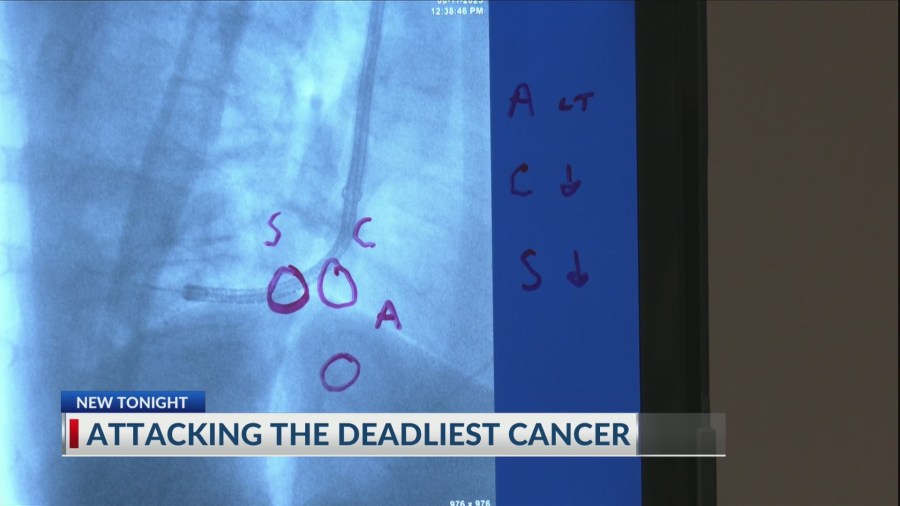In Savannah, Georgia, medical professionals are harnessing cutting-edge robotic technology to enhance the precision of lung cancer treatments. The Monarch procedure, utilized at St. Joseph’s/Candler, allows doctors to locate cancerous nodules with greater accuracy than traditional imaging methods. This innovative approach was demonstrated by Dr. Douglas Mullins, who performed the procedure as part of a series of initiatives marking Lung Cancer Awareness Month.
During the procedure, which is one of over 1,600 that Dr. Mullins has conducted, the robotic device resembles a video game controller. It enables him to navigate to the exact location of a small nodule found in a patient’s lungs, identified through a lung cancer screening. Dr. Mullins explained, “We have a high suspicion that that nodule is cancer. The nodule is very, very small. So that makes it difficult for a surgeon using the DA Vinci Robot to easily find it.”
The Monarch system marks a significant advancement in lung cancer diagnostics. According to Dr. Mullins, the traditional methods offered a 10-15% chance of successfully biopsying such small nodules. With the new technology, accuracy has soared to over 90%. This not only improves diagnostic reliability but also enhances patient safety, allowing for more targeted interventions.
Dr. Mullins emphasized the importance of this technology, stating, “There are very few places in the country that are doing that, but it is gaining traction as we recognize that being able to leverage these technologies to diagnose smaller and smaller nodules and to do more and more limited surgeries so that patients have a quick recovery, short hospital stay, and small incisions.”
Patients undergoing the Monarch procedure frequently express their relief and excitement upon receiving treatment. “Every patient that has this procedure done is absolutely thrilled,” Dr. Mullins remarked. He noted that many nodules, often considered benign at other institutions, can be effectively identified and treated at their center, preventing potential complications in the future.
As part of the ongoing effort to raise awareness about lung cancer, Dr. Mullins encourages individuals, particularly smokers and those with a family history of the disease, to consider screening options. Early detection remains crucial in improving outcomes for lung cancer patients, a disease that continues to be the deadliest form of cancer worldwide.
The implementation of advanced robotic technology like the Monarch procedure not only represents a leap forward in lung cancer treatment but also highlights the commitment of healthcare providers in Savannah to improve patient care and outcomes.
